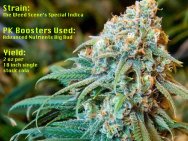Hemp Oil is being used today as a nutritional supplement for people and animals, as well, hemp seed oil is being used for medicinal purposes like helping with the treatments of many kinds of cancer. Humans will take hemp oil supplements as antioxidants just like fish oil or any other oil like vitamin E oil. Finding the purest and highest quality hempseed oil is not an easy thing to do as so many retailers and manufacturers sell hemp oil that is not as pure and clean as it should be. Always look for purity certified hemp seed oils or marijuana oils. Highly unsaturated oils, and especially poor quality oils, can spontaneously oxidize and turn rancid within a short period of time when they are not stored properly; i.e., in a cool/cold, dark place, preferably in a dark glass bottle. Hempseed oil can be frozen for longer periods of storage time. Preservatives (antioxidants) are not necessary for high-quality oils that are stored properly.
How is Hemp Oil & Hempseed Oil Made
Hemp Oil or Hempseed oil that is used for Human Health or Animal Health is all made the same way. Hemp Seed Oil is made by pressing hemp seeds almost like pressing grapes for wine. The cold-pressed, unrefined hemp oil is dark to clear light green in color, with a flavor similar to peanuts or peanut oil. The darker the color, the more it tastes like a plant or grass-like taste. Refined hempseed oil is clear and colorless, with little flavor and lacks natural vitamins and antioxidants. Refined hempseed oil is primarily used in body care products. Industrial hempseed oil is used in lubricants, paints, inks, fuel, and plastics. Hempseed oil has found some limited use in the production of soaps, shampoos and detergents. The oil is of high nutritional value because its 3:1 ratio of omega-6 to omega-3 essential fatty acids, which matches the balance required by the human body. It has also received attention in recent years as a possible feedstock for the large-scale production of biodiesel. There are a number of organisations that promote the production and use of hempseed oil.
Hemp Oil Nutrition
About 30-35% of the weight of hempseed is an edible oil that contains about 80% as essential fatty acids (EFAs); i.e., linoleic acid, omega-6 (LA, 55%), alpha-linolenic acid, omega-3 (ALA, 22%), in addition to gamma-linolenic acid, omega-6 (GLA, 1?4%) and stearidonic acid, omega-3 (SDA, 0?2%).
The proportions of linoleic acid and alpha-linolenic acid in one tablespoon per day (15 ml) of hempseed oil easily provides human daily requirements for EFAs. Unlike flaxseed oil, hempseed oil can be used continuously without developing a deficiency or other imbalance of EFAs. This has been demonstrated in a clinical study, where the daily ingestion of flaxseed oil decreased the endogenous production of GLA.
In common with other oils, hempseed oil provides 9 kcal/g. Compared with other culinary oils it is low in saturated fatty acids.
Hempseed oil has a relatively low smoke point and is not suitable for frying. Hempseed oil is primarily used as a food oil and dietary supplement, and has been shown to relieve the symptoms of eczema (atopic dermatitis).









